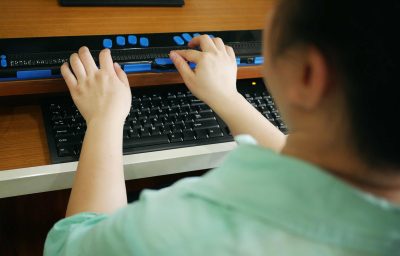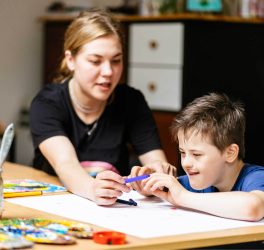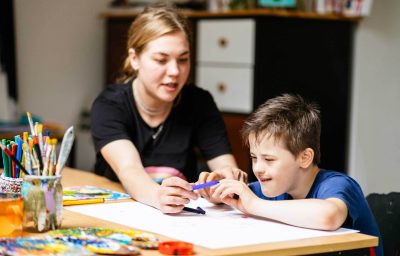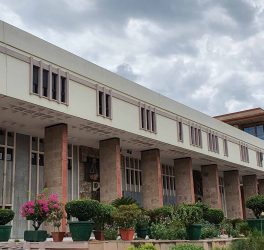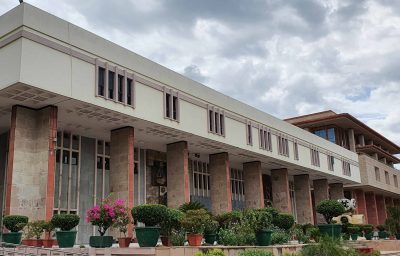As part of National Science Week 2020, Superstar of STEM and Monash Faculty of Information Technology (IT) academic, Dr Kirsten Ellis will demonstrate how STEM activities can be more equitable and inclusive for persons with disabilities.
Many STEM activities are not designed to meet the unique needs of those with disabilities. As a result, people living with disabilities are often excluded from STEM altogether.
In order to allow everyone the opportunity to engage with science, Dr Ellis developed TapeBlocks, an engaging activity in which people with diverse abilities can meaningfully interact in STEM.
TapeBlocks are a creative and engaging tool for everyone to make circuits – including those with limited fine motor skills. Using blocks, conductive tape and electronic components, including LEDs and vibration motors, the task becomes adaptable to different levels of experience and abilities.
As part of National Science Week (15 – 23 August), Dr Ellis will be giving people who have traditionally been excluded from technology engagement activities the opportunity to independently participate in her online TapeBlocks workshops.
“TapeBlocks are the only circuit making activity that can cater to a range of different ability levels. By design, they are able to be connected together with minimal motor skills,” Dr Ellis said.
“If blocks are placed on a flat surface, circuits can be created by pushing them together using only the back of a hand, there is no other electronic kit that is this easy to connect. The blocks also provide accessible feedback to blind users and there are no hidden elements.”
TapeBlocks enable people who are blind and have vision to make circuits using vibration and sound output so they can feel and hear when they are successful. Those with motor disabilities make the most of the chunky blocks by pushing them together without requiring fine motor skills.
TapeBlocks are discoverable to people with intellectual disabilities because they are error-tolerant and can be used with minimal instructions, providing instant feedback through the vibration and lights.
TapeBlocks challenge the way that circuits are traditionally made and therefore challenge those who are able to participate in and make these particular circuits.
“TapeBlocks is a fun, elegantly simple initiative that builds skills and understanding, speaking directly to our goals for Science Week in Victoria – we believe that science is for everyone, which means removing as many barriers as possible to participation, whether those be physical, cultural, economic or the sheer tyranny of distance. Our warm thanks to Dr Kirsten Ellis on bringing that guiding principle to life,” said Mike Flattley, CEO of the Royal Society of Victoria.
Expanding on the debut of TapeBlocks at last year’s National Science Week, the 2020 workshops will be conducted virtually, with kits and training materials being sent out to a wide range of local and regional disability support organisations. For more information, go to https://www.scienceweek.net.au/




